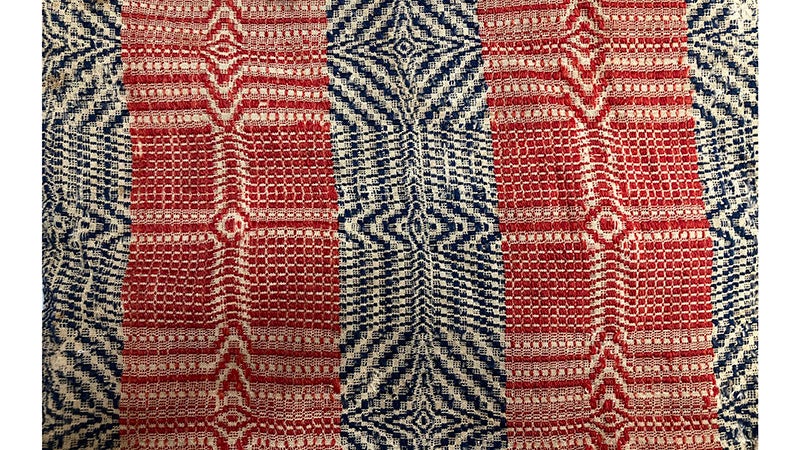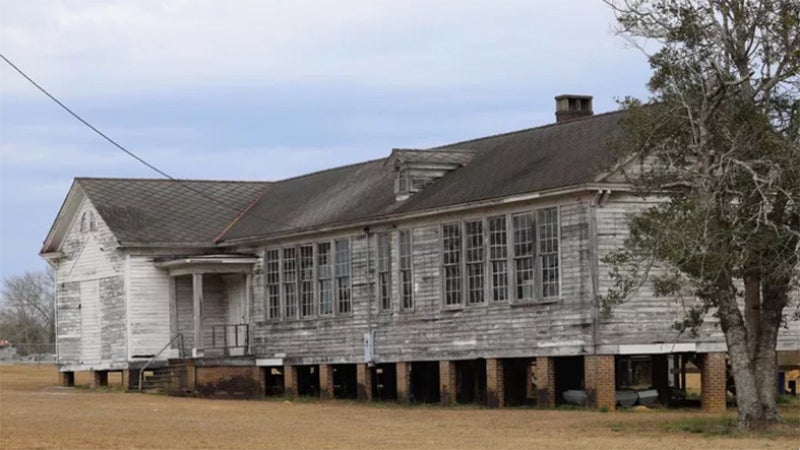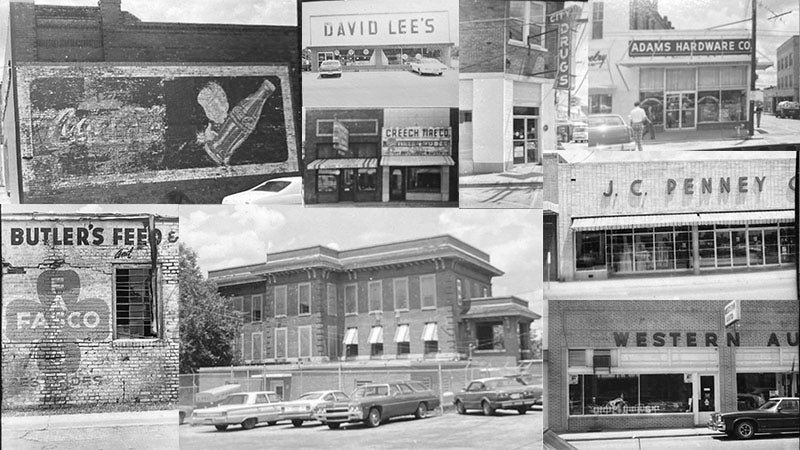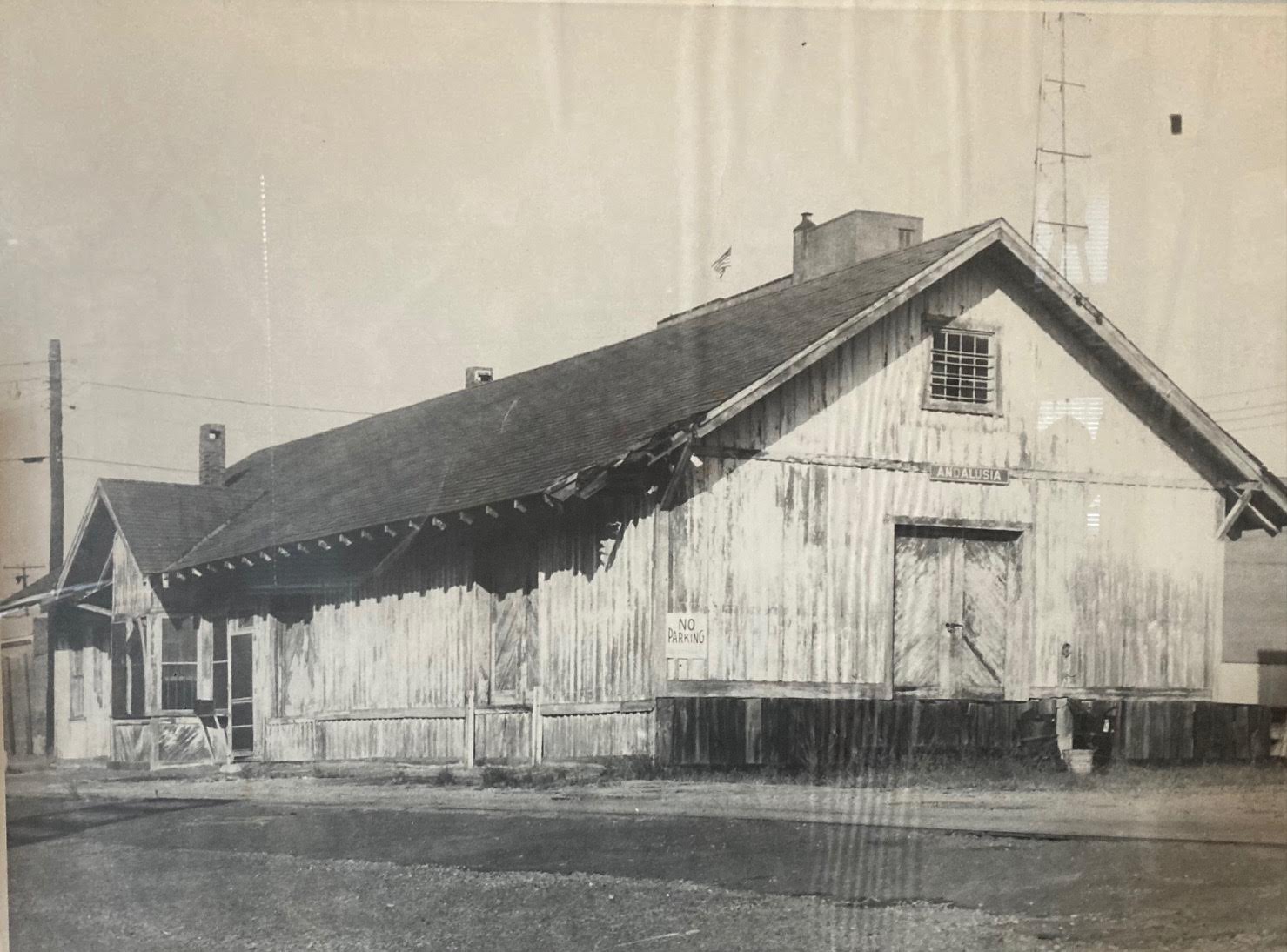Cotton fields make her ‘Remember When’
Published 3:16 am Saturday, September 3, 2016
“I wish I was in the land of cotton, Old times there are not forgotten, look away, look away, look away, Dixie land…”
 “We were walkin’ in high cotton, Old times there are not forgotten; Those fertile fields are never far away; Leavin’ home was the hardest thing we ever faced…”
“We were walkin’ in high cotton, Old times there are not forgotten; Those fertile fields are never far away; Leavin’ home was the hardest thing we ever faced…”
“Song, song of the South, Sweet potato pie and I shut my mouth; Gone, gone with the wind; There ain’t nobody lookin’ back again…”
On the internet, I read that the song “High Cotton” recorded by the group Alabama is the state of Alabama’s official music video. Southern music that preserves our heritage is colorful!
It’s about that time of year when we ride by cotton fields growing really good with all of this rain. A beautiful picture of a cotton field at sunset was posted on social media this week. I began pondering about the heritage of the South. In the early 1900s, my grandfather who lived in LaFayette, Ga., at the time, had his uninsured cotton warehouse full of cotton to burn to the ground. That was about the time of a national panic just prior to World War I so he moved his family to Atlanta and started over.
I think a lot about the Great Irish Potato Famine of 1845 – 1852. When the potatoes turned black in the ground, one million died of hunger and disease and one million Irish and Scotch-Irish immigrated to America. Many jumped on those cotton boats going back and forth to Ireland arriving in South and North Carolina and Savannah settling in the Appalachians which reminded them of their homeland, Northern Ireland and the highlands of Scotland. Those Protestants, many Presbyterians who settled primarily in the South in the 18th century, are the ancestors of many families who live here in Covington County. If the Scotch-Irish had not come, we might not have in our town the stately First Presbyterian Church built under the leadership of Duncan McArtan. McRainey Loop, McLendon Avenue, O’Neal Court might be named something else.
Many died of hunger on the seas en route to America. The Irish immigrants who journeyed to America through Ellis Island and who settled in the New York area helped build the canals and railroads across America. There is an Irish Hunger Memorial near the Manhattan waterfront in New York City. Maybe that was all in God’s plan for the Irish to migrate to America.
The traditional music and folklore of the Appalachian Mountains might have been lost. The rebel yell we hear at football games is said to have come from across the sea, the battle yell. Even the orange and blue school colors of Auburn University which is exemplary of the predominant red-heads of Dublin, and the blue color that the Scottish warriors painted on their bodies. The image of their orange hair waving in the breeze as they came over the hills into battle with the English might never have been part of the American tradition. The AU team colors might have turned out to be yellow and black or purple and gold!
Famous Americans with Scotch-Irish ancestry include, to name only a few, Andrew Jackson, Sam Houston, Ulysses Grant, Harry Truman, Davy Crockett, Nathan Bedford Forrest, George Patton, Johnny Cash, Eleanor Roosevelt, John Wayne, and Elvis Presley. Thank God for the cotton boats!
Back to our Southern heritage, a dear friend of my family, the late William W. (Bill) Avant once shared with me some letters that were found in a trunk, letters written home by a Civil War soldier, his mother’s uncle. John H. Crittenden was his name. Bill’s mother was Olive Crittenden Avant who was from Oakey Streak and who was reared on the Crittenden plantation just across the Covington County line into Butler County.
Here are a few excerpts: “Dear Father and Mother, I have taken this opportunity to give you a short epistle to let you know that I am well and hoping that these few lines may find you enjoying the same good blessings…The first thing I saw after I arrived at Camp Grounds was one of the soldiers tied down and gagged for drinking and cursing his captain. When I saw it I felt like I had rather be at home. My hat blowed off while I was riding on the (rail) cars from Greenville to Montgomery…We have joined a regiment but our Capt. is dissatisfied and is going to try to get out. It is a North Ala. Regiment and there is a good many Irish in it and they are always drinking and fighting…You need not feel uneasy about my drinking for I have not touched a drop since I have landed nor don’t intend to…Some sick in one place and some in another. We had to wade branches and swim rivers with our clothes on our backs and have not had nothing to eat since yesterday morning nor don’t expect to get anything till I get to Manassas Junction which is 20 miles…If the rest can stand it, so can I…If I should get killed upon the battlefield, I will get Lieut. Adams to write you word…I just think that we will be marching on after the enemy until the war is over which I don’t think will be long (July 21, 1861)…I never landed here until the day after the battle was over so I walked out on the battle field this morning and such a sight I never saw before…stood and counted about a half acre of ground – 32 dead men and 21 horses belonging to the Yankees. I could of stood and counted on the same spot 300 if I had of been a mind to…We think it won’t be long before we will march into Washington City (July 26, 1861).”
The outdoor elements began influencing the good health the soldiers had first enjoyed. John wrote, “I have not felt very well since yesterday. I reckon it was caused from getting wet the other day. We had to march all day through the rain and lay out all night in our wet clothes. We have not slept under our tents in a week or ten days. Out of 91 Privates, there is not but 28 fit for duty. I have not missed roll call not a single day since I left home….Give my respect to Wilson and tell him I think of him nearly every day and tell him I never wanted to go hunting so bad in my life…I will give you a list of such things as I need. I need 1 pair of blankets, 1 overcoat, 1 pair of warm gloves, 2 large silk pocket handkerchiefs, 1 pair of socks and when you send these things, send me some cake if it is nothing but ginger cake…Pa and Ma, if they all don’t write to me oftener, I will take to drinking, smoking, chewing, or some other bad habit just for consolation, especially Ma…I would give anything in the world to see her.”
From somewhere in Virginia, John Crittenden wrote, “This country is very different from what you think it is. It is just pretty much like Covington County…There was a young man from our company died at Manassas the other day by the name of Mitchell. He was from Covington County. There was three brothers of them at first and out of three, there is only one left. One died at Bull Run…I slipt off to a house and stayed all night where I slept in a feather bed. I can’t say that I slept much either for my head swam all night not being used to sleeping in a bedstead.”
From Centerville, VA., Crittenden penned, “I would like very well to come home to see the girls. Give my respects to them all and tell them howdy. I reckon they will all be married by the time I get back, but if they do, I will kill somebody and marry a widow.”
As the Southern armies confronted defeat, the men tended to grow more religious as a John Crittenden from another Crittenden family’s collection of Civil War letters noted in 1864, “A good deal of interest is now taken in religious matters. I witnessed the baptism of two young men – brothers yesterday. They belonged to the 28th Ala. A few months back the best of preachers could not get a congregation. Now hundreds are anxious to attend.” In the same letter, he asked his mother to send him a Bible, along with shoe strings and more letter paper.
From a friend on September 22, 1862, a letter was written to John H. Crittenden’s father, “According to my promise to you, I will drop you a note in which I will inform you that your son John was killed on the 19th on the battlefield. He was shot in the head and never spoke a word after he was shot…I hope that we may be prepared to meet each other in another life. I can tell you that I hated to lose John’s company as bad as anybody for he was a good friend to me and made a great soldier. My best respects to all inquiring friends. I remain yours as ever, Elias Long.” John was 22 years old.
Another friend or officer wrote John’s father, “It grieves me much to have to inform you of the death of your son who lost his life while discharging his duty in battle. He was killed instantly. Tender my pious regards to Mrs. Crittenden and family. J. J. Wright (Sept. 26, 1862).”
The younger brother of John H. Crittenden, Joseph F. Crittenden, later joined the Confederate Army. On August 15, 1864, he wrote home from the City Hall Hospital in Macon, Georgia, “Father, I am very sick with the fever. I am very much reduced. Come, Father, for I need your help. Bring me a pair of pantaloons. I am getting weaker every day. Your truly and affectionate son, J. F. Crittenden.”
On September 2, 1864, a Mr. Slaten wrote these words to the father of J. F. Crittenden, “Your son died this morning about 3 o’clock. Will be buried this evening. He never got any better after you left. How must I dispose of your money? I will send it by mail if you say at your risk. Please let me know soon.”
In 1977, the Avant family visited Sharpsburg, Maryland, the Antietam battlefield site. The family felt certain that John H. was killed in the fighting at Bloody Lane, a term given because of the many casualties suffered by both the Confederate and Union armies. They searched the many headstones in the area but did not find John’s name on any marker. There were many marked “unknown.”
Avant wrote his sister and brother, “The experience on the battlefield was very emotional and moving. That John fought and died for his cause on this ground so many years ago is an experience we will never forget. Seeing the cornfields, pastures, and fields looking much as they must have in 1862 was overwhelming. We wanted to share our experience with all of you.”
In September 1985, the Auburn Alumni News featured a story titled, “Descendants Bring Civil War Letters Back Home.”
“Descendants of John and Bettie Crittenden arrived in July to see Loachapoka, the hometown of their great grandparents. They carried with them on this unusual vacation a box of letters that had been in the family’s possession for 122 years. They planned to deliver the (Civil War) letters to a resting place close enough to Loachapoka where the letters would be preserved at the archives at Auburn University. (I might add that it cannot be determined whether or not these Crittenden families were related or not.)
This is our Southern history. Little is mentioned in present day history of the fact that a majority of rural Baptist churches were founded by, property donated by, pastored by men who were Confederate veterans.
A census list of Confederate veterans who were still living in 1907 is displayed in the “war room” at the Three Notch Museum on Historic Central Street. Some of these names include family names of people who still live around here – Armstrong, Brooks, Bradley, Chapman, Diamond, Dubose, Hart, Kilpatrick, Mitchell, Patrick, Pierce, Powell, Taylor, Terry, Thomasson, Wiggins, and Williams.
The G.R.I.T. (Girl Raised in the South) that I am, I think that this weekend, I will celebrate my Southern heritage by cooking up some chicken and dumplins, some succotash (okra, tomatoes, and corn), a hoecake of cornbread, some butterbeans, Granny Lois’ baked custard pie, and a jug of sweet tea.
Some famous writer once said, “Those who have no pride in their ancestry will hardly be likely to accomplish anything worthy to be remembered.” We can and must learn from the failures and successes of the past. That is why we study history, the way it was. As a result, we can gain much understanding of who we are when we REMEMBER WHEN.





